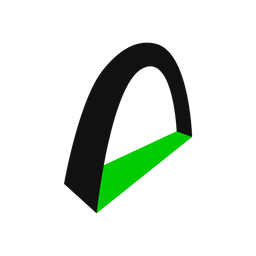The Decentralized Finance ecosystem continues to grow, developing new and innovative solutions. One of those are DEX Aggregators, which crypto traders use to access more liquidity and better pricing.
But what's a DEX Aggregator?
Before jumping into what a DEX aggregator is, let's brush off some knowledge.
DEX is short for decentralized exchange. They work similarly to traditional exchanges but through smart contracts and liquidity pools. We have a whole post dedicated to decentralized exchanges.
And while DEXs offer transparency like no other, they also need help with liquidity for smaller tokens and pricing. And this is where DEX Aggregators come in.
DEX Aggregators (which can also be called Liquidity Aggregators) are financial protocols that give traders a simple way to access various trading pools from a single place.
They work with algorithms that consider different factors before selecting the best possible provider for a specific token type and allowing the swap between platforms.

The history behind DES Aggregators
The first DEX Aggregator was created as part of a hackathon in 2019, so they are relatively new in the space.
Sergej Kunz and Anton Bukov built the first DEX aggregator in 18 hours during a hackathon which later served as the foundation for today's 1inch.
The first version was, obviously, not entirely functional, but it set the bases for DEX Aggregators in the future.
Since that launch, DEX Aggregators have continued to rise and evolve and have gotten an essential place in investors' trading strategies, especially among those that do high-volume trading. After all, they help traders make better and more informed decisions while showing the full range of options for trades and swaps.
Let's deep dive into the reason why use a DEX Aggregator
DEXs have become increasingly popular, especially after the credibility crisis that has affected Centralized Exchanges.
With a DEX, tokens can be exchanged without the participation of an intermediary or third party using Automated Market Makers (AMM) to set prices and manage liquidity. However, some of these liquidity pools may not have enough liquidity to support a lot of trades (especially with more minor token pairs) which can affect prices.
DEX Aggregators provide a single entry point of access to check all types of DEXs simultaneously, allowing traders to find better trading pairs, pools, and other information they might need when deciding to trade crypto tokens.
You can think of them in a similar way to Google. When you Google something, you get a compilation in a single place of all the sites that could answer your questions.
It is a quick and easy way to browse the web without needing to check every single website available to see if they have information on what you need.
A DEX Aggregator works similarly to that but with information about decentralized exchanges.
What are the types of DEX Aggregators?
There are generally two types of DEX aggregation.
Trading aggregation
These aggregators main focus on aggregate trades. They give traders information about trade options, so they know which to pick to make the most profitable trade.
Information aggregation
These aggregators gather information. Things like real-time data and on-chain data. They provide traders with enough information to make their decisions process easier.
DEX Aggregators are essential in the innovation and development surrounding DEXs and DeFi.
With an industry that's as volatile as the crypto industry can be, every second counts; aggregators give traders the resources they need to make quick and informed decisions th
In the DeFi world, where thousands of tokens are launched across different chains, traders want to be able to trade these assets across chains. This can open new opportunities for DEX aggregators who provide frictionless cross-chain token swaps.
They are expanding the use of crypto exchanges. However, just as with finances, remember to DYOR or Do Your Own Research before picking and working with one.



